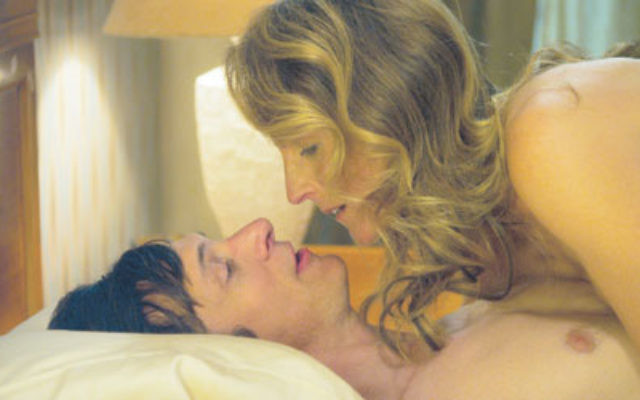Emotional affair of the heart
FILM REVIEW by Don Perlgut. Australian Jewish director Ben Lewin’s The Sessions is a challenging and moving film about a highly unusual subject: sex and the disabled.
The film is set in Berkeley, California, in 1988, and tells the story of how Mark O’Brien, a severely disabled writer and poet who eventually received a master’s degree in journalism, strove against the odds to become a sexual being.
It is based on a true story about O’Brien, who was paralysed from the neck down and forced to spend most of his time in an “iron lung” to help him breathe. He contracted polio as a child and when he was 38, he decided he wanted to lose his virginity.
He found a sex therapist, Cheryl Cohen Greene, with whom he learnt how to have intercourse.
Lewin, who himself survived polio as a child and has walked with crutches ever since, directed the film and wrote the screenplay based on O’Brien’s 1990 article entitled “On Seeing a Sex Surrogate”.
To establish the credibility of The Sessions, a later partner of O’Brien – Susan Fernbach – and the real Greene both worked as consultants to the film.
It is clear, however, that Lewin’s own life experiences are reflected in this film in some very profound ways.
John Hawkes, an able-bodied actor, plays O’Brien, whose disabilities were so severe that he could only lie down on a portable bed and move his head with painstaking slowness to type his poems and articles. He had to be wheeled around by a carer everywhere he went.
Hawkes, best-known for his Oscar-nominated performance in Winter’s Bone (2010), delivers an extraordinary performance in the role where the character cannot move and can only portray emotion through his face and voice.
Except for having too many muscles on a body that has not moved for three decades, the performance is convincing, very funny and devoid of sentimentality.
Helen Hunt plays Greene, the sex therapist with a Jewish husband (played by Adam Arkin) and a child at home.
The role demands that Hunt is frequently naked, and the film includes full-frontal nudity and a number of simulated sex acts. This is a brave performance and Hunt’s combination of emotional brittleness and energy are almost perfectly suited for this role.
Hawkes and Hunt should be in the running for Oscar nominations as these are the sort of challenging roles that the Academy Award voters love and that set The Sessions apart from previous films about disability.
The Sessions title refers to the therapy sessions which Greene and O’Brien have.
The third major character in the film is a wise and supportive priest named Father Brendan, played with warmth and empathy by William H Macy. This role appears to be manufactured for the film, giving the audience an opportunity to get “inside” O’Brien’s head, exploring his Catholic guilt and his own emotional journey.
It also gives Macy some of the film’s best lines, delivered with a wry and clever demeanour.
The Sessions tries hard to transcend its subject – how a man overcomes great barriers to become sexual – and mostly succeeds, providing clear insights into what really matters in relationships and life.
Tender, funny, touching and unsentimental, its subject may not appeal to all audiences. Yet The Sessions is powerful, inspiring and uplifting.
The Sessions is currently screening.
PHOTO of John Hawkes and Helen Hunt in The Sessions.


comments